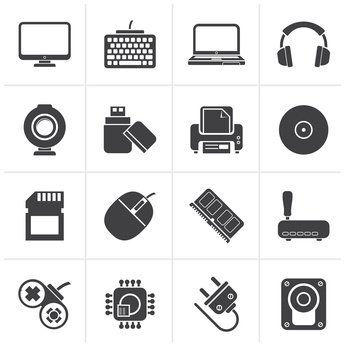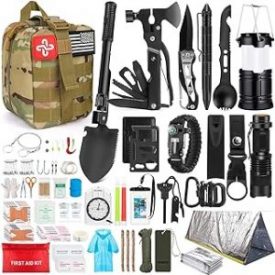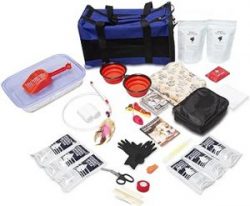How to Prepare a Bug Out Laptop Kit
 Can you imagine being away from your computer for an extended period of time? No internet, no email, no funny jokes, no games to play? Many people have found themselves in this position when the unexpected happens. In the event of a natural disaster, terrorist event or a bird flu pandemic, having access to your computer could be a lifesaver. Are you one of the many people who have all their personal and financial records stored on their computer with no back up and no way to access them in the event of an emergency?
Can you imagine being away from your computer for an extended period of time? No internet, no email, no funny jokes, no games to play? Many people have found themselves in this position when the unexpected happens. In the event of a natural disaster, terrorist event or a bird flu pandemic, having access to your computer could be a lifesaver. Are you one of the many people who have all their personal and financial records stored on their computer with no back up and no way to access them in the event of an emergency?
Because we are so wired these days, a backup laptop computer should be considered part of your essential survival gear just as much as a 3 day supply of food and extra water. You can either choose to use your existing laptop or buy a used one specifically for use in the event of an emergency.
Now you could buy one of the rubberized heavy duty laptops that are made to withstand extreme conditions but that will set you back several thousand and probably isn’t necessary. You can find a number of good used laptops online for a few hundred dollars. It doesn’t have to be the latest and greatest, it just needs to get the job done when you need it to. A good basic laptop with a cd rom and a good battery will do the trick.
Items you will want to add will include a wireless card for accessing the internet. While your internet access may be down you may be able to find a hot spot for access. Most laptops will have a built-in modem, if not you will want to add a modem card also.
Cell phone connectors so you can access the internet via your cell phone. You may need to add internet access to your cell phone plan. Modem and network cables, you need to be able to plug and play. Power cable and ac adapters. A 12-volt adapter and converter. You could run your laptop directly off 12 volt or run it through a converter to charge the battery. A spare battery. Any other laptop accessories you feel necessary such as external mouse or even a solar battery charger. With this setup you should be able to access the internet either through dialup or wireless.
You may also want a small external hard drive or flash drive. A portable printer is nice but not absolutely necessary. All needed software should be loaded along with a backup or emergency startup disk. Don’t forget to load in your favorite bookmarks.
You will need to decide what files you want to take with you. You should have a backup from your main computer of your personal and financial records. Burn these to a cd. You could have another cd with your household inventory complete with digital pictures. If your house is destroyed you have a record of the contents. Consider scanning in family photos so you have a backup of those. Don’t forget to have a copy of all your passwords for accessing online sites and accounts.
Address book and email contacts will also be important. Any other or vital documents that would be hard to replace and are essential to recovery after any type of emergency should be backed up. Consider scanning in copies of your will, birth certificate, marriage certificate, titles and deeds. Because this information is private consider security software to encrypt it in the event it fell into prying eyes.
You may want to build a cd reference library of information that could help you survive a disaster and recover. Backwoods Home Magazine offers back issues on cd including one specific to survival.
The Mother Earth News also has back issues on cd. Both would give you a wealth of survival and how to information. You might also include foreign language cds, learning cds appropriate for your children’s ages, games, if you can’t live without them and to pass the time. Reference books could include encyclopedias, yellow pages for your area, maps, cookbooks and anything else that will help you out.
If you have high-speed internet access at home, get a list of dialup numbers from them for around the country or consider an AOL account or other national provider.
If you can’t access the internet one way you should be able to access it another way.
Now, the whole idea of this setup is to “bug out” with it. Grab and go in the event of an emergency. You will want to store it all in a good laptop case with easy access. For extra protection you may want to consider a waterproof case (good in the event of a flood) or a hard side case such as an aluminum one that photographers use to protect their equipment. Other family members should know where you keep it so if you are not at home and they need to leave they can grab it for you.
Before you pack it all away, test it out.
Make sure your connections are working and it starts up without problems. Test it once a month and make sure the batteries are still charged. Try accessing the internet through dialup and a wireless hot spot. Work out the bugs before you need to use it in an emergency.
Having a backup bug out computer will help you when the unexpected happens and get you back on the road to recovery.
_


 November 4, 2015
November 4, 2015 






